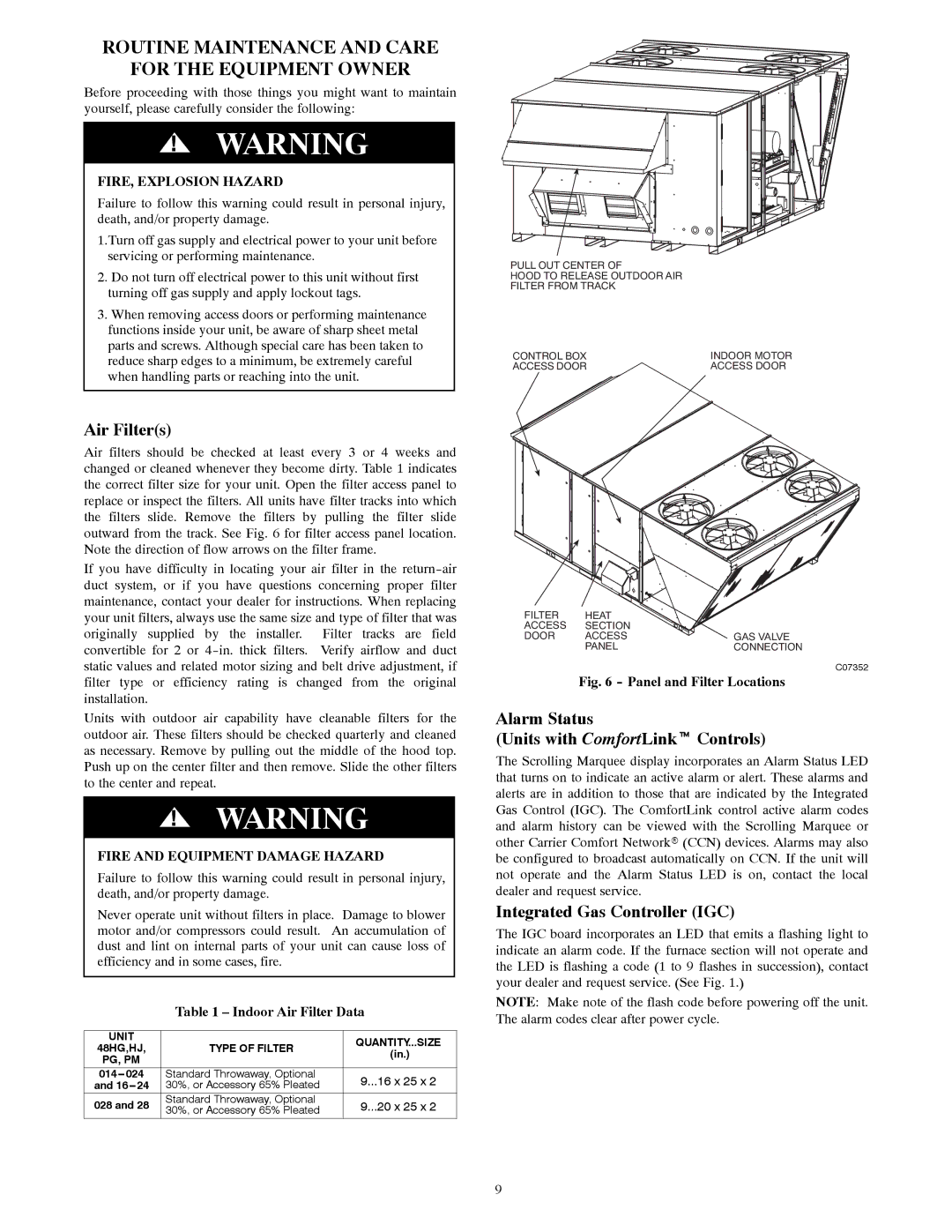48HG14---28, 48HJ20---28, 48PG20---28, 48PM16---28 specifications
The Carrier 48HG14---28, 48PG20---28, 48HJ20---28, and 48PM16---28 models are part of Carrier's renowned lineup of packaged rooftop units (RTUs), designed for commercial HVAC applications. These units combine advanced technology with efficiency and reliability to deliver comfort in various environments.One of the key features of these models is their high-efficiency operation. Utilizing environmentally friendly refrigerants, they comply with the latest regulations while offering improved energy performance. The units are designed with an energy-efficient compressor and heat exchange systems, maximizing cooling and heating output while minimizing electricity consumption.
These Carrier models also boast a compact design that facilitates easy installation on rooftops, making them ideal for commercial buildings with limited space. The ergonomic layout includes accessible service points, enabling quick maintenance and reducing downtime. Furthermore, these rooftop units are structurally sturdy, capable of withstanding adverse weather conditions.
Equipped with advanced microprocessor controls, the 48HG14---28, 48PG20---28, 48HJ20---28, and 48PM16---28 models offer precise and customizable temperature control, ensuring a consistent indoor climate. The integrated smart technology allows for easy integration into existing building management systems, providing users with real-time monitoring and diagnostics.
Moreover, the noise reduction features in these units ensure a quieter operation, which is critical for commercial spaces where minimal disruption is desired. To enhance indoor air quality, these models include options for variable speed fans and advanced filtration systems, effectively reducing airborne contaminants and improving overall air comfort.
Another significant characteristic of these Carrier units is their versatility. They can be configured for either cooling-only or heating and cooling applications, making them suitable for various climates and building types. The extended product line offers a range of capacity options, ensuring that users can select the right unit for their specific needs.
In conclusion, the Carrier 48HG14---28, 48PG20---28, 48HJ20---28, and 48PM16---28 models represent a blend of efficiency, durability, and innovative technology. They offer reliable performance, ease of maintenance, and exceptional comfort for commercial buildings, solidifying Carrier's position as a leader in the HVAC industry.

